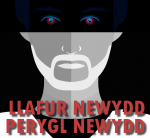Union of Britain
A monarchy under Queen Charlotte as of 2088, the Prime Minister is Ava Lansdown of the Conservative Party. It is a well-off part of the European Federation (EuroFed) and seen as one of the prime leaders of that federation and a bastion of "Europeanism".
London is a sprawling metropolis and considerably bigger legal-wise. The rest of England are divided in provinces, namely devolved regions. Scotland is a stronghold of the Conservative Party's Scottish sister party the Unionist Association and overall is seen as the more "traditional" Celtic country, a bastion of Celtic conservatism and traditionalism. Unlike their cousins down south...
And now we come to Wales and Cornwall. Yes, Wales and Cornwall. Blame Mebyon Kernow for fuelling a "fuck it, if we can't get devolution we might as well try to be part of Wales" movement in the 30s. Often just called Wales, it's a hub of cultural liberalism and the Valleys create many hits for British media, up to the point where it's called "Valleywood". Politically, it goes for the Radicals, although Plaid Cymru often has good days and sometimes becomes government.
The Radicals are the new political party on the block. As Labour tears itself apart and is widely seen as devoid of ideas, the Radicals step in. The Radicals are ultimately the merger of the Greens, Progressives, Democrats 48, iNTERACT and People With Passion in the 2060s and has only grew and grew. Refusing to categorise themselves as left or right, they instead portray themselves as "offering new politics for a new age". Both to the left and right of Labour, their ideas can be charitably described as... syncretic. Universal basic income isn't a new idea, but some of their other ideas, like functional constituencies replacing the House of Lords, adoption of the "Swiss model" of direct democracy including letting the people force a vote of no confidence referendum, yeah. Weird.
In the 2087 election, they surpassed Labour for the first time, marking a sea change in British politics.








